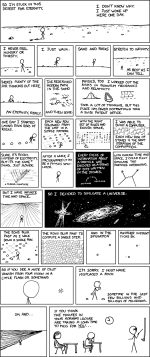A lot. You see the problem here is how we can simulate a concious persion. There is no reason why cannot do that, including an I that reports that it is concious and can hear its thoughts "in the minds ear" etc. That is not a hard problem becsuse we really only need to create an agent that behaves as if. The problems if vision recognition, rational choices, creativity, intension etc is difficult but not really the hard problem of actually ligting up the inner theater.
That is the point. That is the conscious/aware aspect, to be conscious/aware of colours, shapes, etc, and their significance on the basis of recognition, an aspect of conscious awareness. Which may or may not include self awareness. Some animals perhaps conscious of their environment, but not self conscious.

